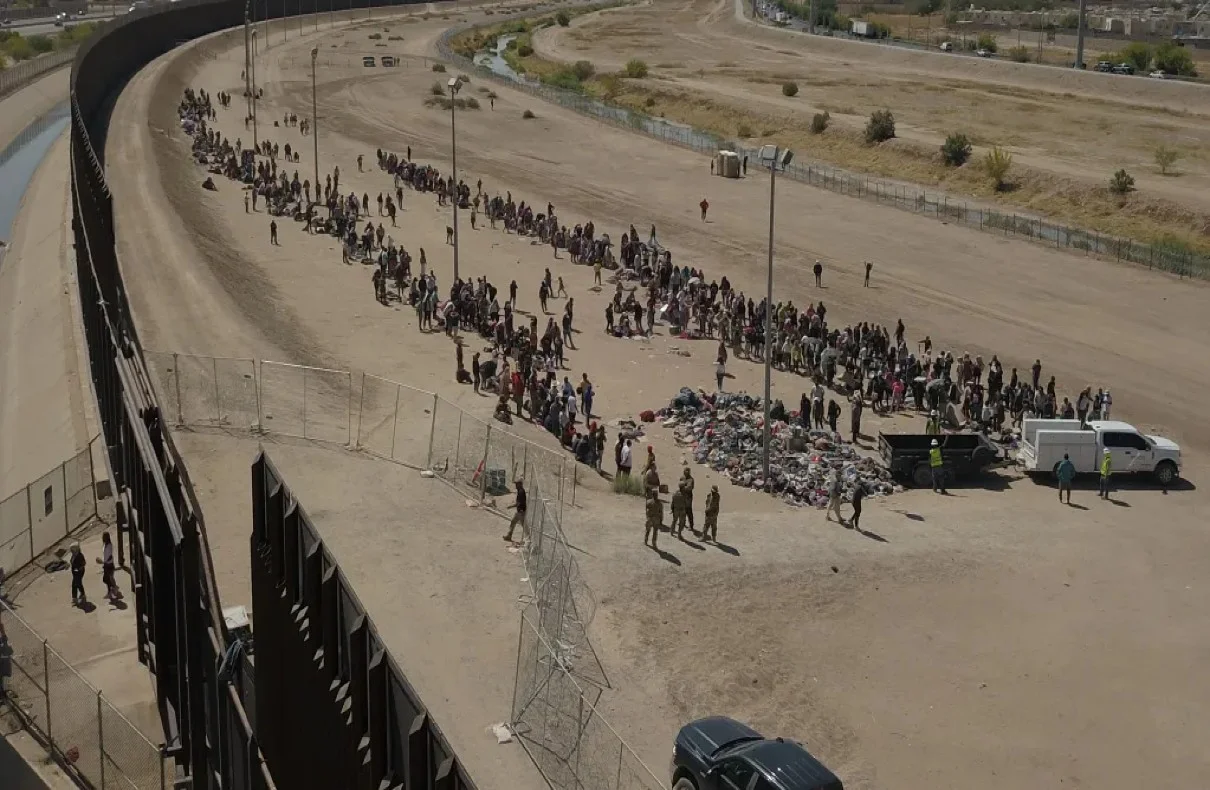
In the recent past, immigration has been a burning issue across the U.S., with Texas being at the epicenter. The state’s border policy and its consequences have sparked nationwide debates. A significant development in this context is the controversial Texas immigration law, also known as Senate Bill 4 (SB 4).
This law empowers local police to arrest individuals suspected of illegal entry into the country. While the law has been highly contentious, recent developments suggest that its implementation is imminent, pending intervention from the Supreme Court.
Texas’s Senate Bill 4 is a piece of legislation that has attracted significant attention for its far-reaching implications on immigration enforcement. Passed in 2023, this law was born out of the pressing need to tackle the growing issues related to illegal immigration in Texas. Governor Greg Abbott, a key proponent of the law, has constantly asserted the state’s right to defend its borders.
The law makes unauthorized migration a criminal offense, punishable as a misdemeanor with up to six months in jail. Repeat offenders, or those accused of reentering the country illegally, could face felony charges. SB 4 also gives state judges the authority to order deportations to Mexico and empowers local law enforcement to execute these orders.
Ohio Ban on Gender-Affirming Care Overruled by Lawmakers
The legal journey of SB 4 has been marked by a series of rulings and counter-rulings. The law was initially set to take effect on March 5, 2024. However, U.S. District Court Judge David A. Ezra issued an order blocking the law’s implementation. He opined that the law could lead to each state passing its own version of immigration laws. This, he believed, was not in line with the federal government’s exclusive authority over immigration.
However, the 5th Circuit Court of Appeals reversed this decision. The appellate court did not rule on the merits of the case but granted a seven-day stay on the enforcement of the lower court’s injunction. This move effectively paves the way for the law to take effect, barring intervention from the U.S. Supreme Court.
The Supreme Court’s intervention is now a critical factor in determining the future of SB 4. If the Supreme Court chooses not to step in within the seven-day stay period, the law will go into effect. The escalation of this case to the Supreme Court marks yet another chapter in the ongoing debate over Texas’s border policies.
SB 4 has been the subject of intense debate among various stakeholders, including civil rights groups, immigration advocates, legal experts, and political commentators. Advocates of the law argue that it is a necessary measure to curb illegal immigration and protect Texas’s borders. They believe that the state has a right and duty to safeguard its residents from the implications of illegal immigration.
Justice Served: Man Sentenced to 25 Years for Kaylin Gillis Murder
Critics, on the other hand, argue that SB 4 is an overreach of state powers. They fear that it could lead to racial profiling and infringe upon the civil rights of individuals. They also contend that immigration law falls exclusively within the purview of the federal government, and states should not have the authority to pass their own immigration laws.
SB 4’s potential impact is extensive. If implemented, the law could fundamentally transform the approach to immigration enforcement in Texas. It could also set a precedent for other states contemplating similar laws.
One of the significant concerns is the potential for racial profiling. Critics argue that the law could lead to unwarranted arrests and detentions, based merely on suspicion of illegal immigration. This could disproportionately affect racial and ethnic minorities, causing widespread fear and uncertainty.
Another significant impact is on the criminal justice system. The law could lead to an influx of cases related to illegal immigration, putting additional pressure on state courts and law enforcement agencies.
The future of SB 4 hangs in balance. As it stands, the fate of the law rests with the U.S. Supreme Court. The court’s decision could either pave the way for the law’s implementation or halt it in its tracks.
However, irrespective of the court’s decision, the debate around SB 4 and similar laws is unlikely to subside. As immigration continues to be a contentious issue, state-level attempts to regulate it will remain a hot-button topic.
